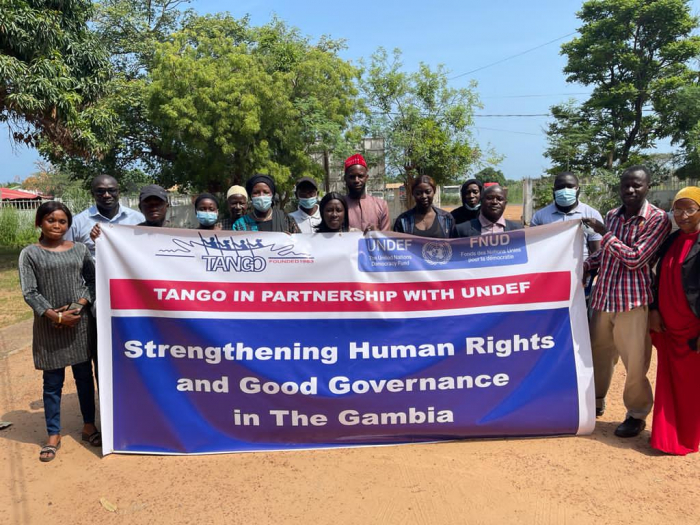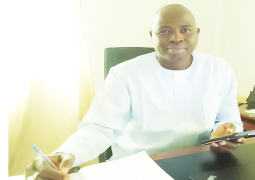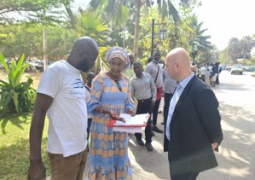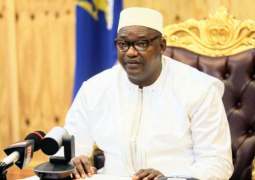
The training sought to raise awareness on human rights and rule of law. They would also monitor and evaluate beneficiaries who have undergone series of trainings. This training will be strengthening all the regions around the country in order to engage beneficiaries on what they have learned.
Ndey Sireng Bakurin, the executive director of TANGO, explained that the training focused on the things learned previously under the human rights and rule of law project funded by UNDEF.
“The Gambia has experienced serious human rights violation for the past years 22 years. Therefore, the training will help to equip the skills and increase our knowledge on human rights and rule of law.”
Mrs. Bakurin further reiterated that the main purpose of the training was to raise awareness on human rights and rule of law, while adding that dialogue and engagement is crucial in helping the stakeholders including CSOs to fulfill its role in national development.
“Free and democratic elections are not only about casting vote in fair conditions, but to ensure that citizens are informed about their rights and electoral processes for informed decision making and participation during electoral processes.”
She added that electoral monitoring bodies such as CSOs, should proactively disclose information regarding the registration process and voting timetable. She thanked the CSO coalition on elections and associated partners for playing an active role in the country’s electoral process.
She expressed delight to the resource person, Human Rights Commission and UNDEF for the fruitful collaboration and support to TANGO and partners.
John Charles Njie, the chairman of TANGO, also stated that the importance of monitoring and evaluation cannot be over emphasised because it is always important to look on the impact that the training had on them.
“This session will accord you (participants) the opportunity to see how far you assimilated; what you have been trained in the past and how much it impacted you, and what are the gaps and the areas that need an emphasis. I hope in these two days, you will ensure that our municipality becomes one of the best.”
He further indicated that the country’s problem is not only political leadership; instead it’s in every Gambian on how they comport themselves and how they fight or undermine each other. He added that instead of helping each other, Gambians are almost digging each other’s grave.
“But with this kind of trainings, we will move from the personal to the collective. If you are able to bring your expertise and work for your municipality and country, I believe that in a very short time, this country will be a dream come through and everybody will be happy.”
Read Other Articles In Headlines

MCA rejects blame for all AKI deaths of children -Marenah says agency has evidence
Jun 27, 2025, 11:48 AM




